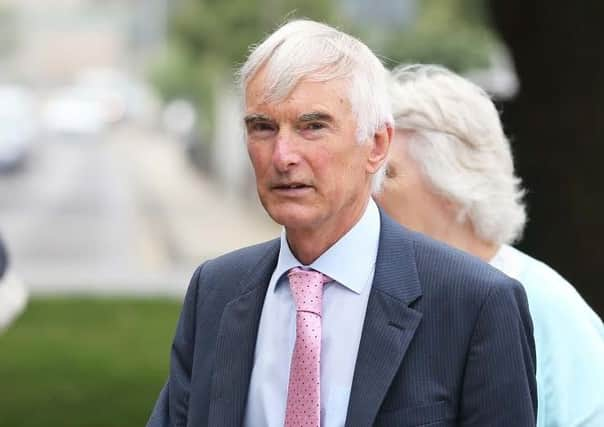Ex-Littlehampton mayor denies fraud and forgery as trial begins


Town councillor Malcolm Belchamber denies the allegation, relating to his time at Leaders, in High Street, in November, 2014, placing the blame on a colleague previously convicted of benefit fraud.
Mr Belchamber, 70, of East Ham Road, also denies forging a letter from the Home Office in 2004, claiming the same friend had indefinite right to remain in the UK.
Advertisement
Hide AdAdvertisement
Hide AdOn the first day of Mr Belchamber’s trial on Tuesday (June 16), Ryan Richter, prosecuting, said: “It is the crown’s case that Malcolm Belchamber, who is a very respected member of the community in Littlehampton and a man of complete good character, formed a very close friendship with Osman Koroma.
“It is the prosecution’s case that because of the friendship Mr Belchamber, on two occasions, went out of his way to do things that were illegal, to help his friend.”
Day one of the case, at Hove Crown Court, focused on the 2014 letter.
The letter, written on November 25, advised Mr Koroma’s monthly rent would increase from £525 to £650. It prompted Arun District Council to increase his housing benefit.
Advertisement
Hide AdAdvertisement
Hide AdEvidence of wrongdoing came to light after December 3, when Mr Koroma’s landlord asked Leaders to increase the rent to £600.
Arun queried why the rent was decreasing and an investigation was launched. Leaders dimissed Mr Belchamber for gross misconduct in June, 2015, the court heard.
The jury was told three employees, including Mr Belchamber, reported for work at Leaders’ Littlehampton branch on November 25.
The firm’s systems showed the fraudulant letter was created at 5.39pm – when only Mr Belchamber and a second employee, Gillian Clifford, were working.
Advertisement
Hide AdAdvertisement
Hide AdLogs showed the templated letter, together with a request to the IT department to wipe it from the system at 5.49pm, were created on Mrs Clifford’s account. The prosecution asserted Mr Belchamber had used Mrs Clifford’s account to produce the letter while she was away from her desk.
Mr Richter said Mrs Clifford regularly took breaks near the end of the day, walking ‘round the corner’ to smoke. He said she routinely left her computer unlocked.
Mrs Clifford took to the witness box and told Clare Leslie, defending, she was ‘probably washing up or having a cigarette or something’ when the letter was drafted.
Miss Leslie said it would have been ‘brazen’ for her client to sit at her desk to carry out the fraud if she was just steps away.
Advertisement
Hide AdAdvertisement
Hide AdShe said: “You have not told the jury the truth because you made the letter.”
“I didn’t and I am not making anything up,” Mrs Clifford repled.
The court heard Mrs Clifford was convicted of benefit fraud between June 2005 and September 2007 – an offence she failed to declare to Leaders when she was employed.
She told the jury: “I did it with my husband because we were short of money. We paid the price and we went through hell. I would never do it again.”
Advertisement
Hide AdAdvertisement
Hide AdIn his police interview, the court heard Mr Belchamber initially denied knowing about the letter.
He then claimed Mrs Clifford had written it under pressure from Mr Koroma.
He said the Home Office letter, found in a box in his bedroom, had been given to him by Mr Koroma but he did not know anything about it.
The trial continues.